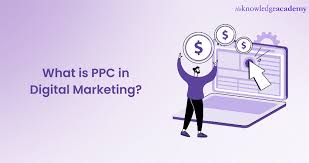The Power of PPC Internet Marketing
Pay-Per-Click (PPC) internet marketing is a powerful tool that businesses can use to drive targeted traffic to their websites and increase conversions. With PPC advertising, businesses only pay when a user clicks on their ad, making it a cost-effective way to reach potential customers.
One of the key benefits of PPC internet marketing is its ability to target specific audiences based on factors such as location, demographics, and interests. This targeted approach ensures that ads are shown to users who are more likely to be interested in the products or services being offered.
PPC campaigns can be easily tracked and measured, allowing businesses to analyse the performance of their ads in real-time. This data-driven approach enables businesses to make informed decisions about their marketing strategies and optimise their campaigns for better results.
Another advantage of PPC internet marketing is its flexibility and scalability. Businesses can set their own budget for PPC campaigns and adjust it as needed. This makes it suitable for businesses of all sizes, from small startups to large corporations.
PPC advertising also allows for quick results, with ads appearing at the top of search engine results pages almost immediately after launching a campaign. This instant visibility can help businesses increase brand awareness and drive traffic to their websites in a short amount of time.
In conclusion, PPC internet marketing offers businesses a cost-effective, targeted, and measurable way to reach potential customers online. By leveraging the power of PPC advertising, businesses can drive traffic to their websites, increase conversions, and ultimately grow their online presence.
Eight Compelling Advantages of PPC Internet Marketing
- Cost-effective
- Targeted advertising
- Measurable results
- Flexibility
- Quick results
- Brand exposure
- Highly scalable
- Enhanced control
Five Drawbacks of PPC Internet Marketing: Cost, Click Fraud, Learning Curve, Ad Fatigue, and Budget Dependency
Cost-effective
One of the key advantages of PPC internet marketing is its cost-effectiveness. Businesses benefit from only paying when users click on their ads, making it a budget-friendly marketing option. This pay-per-click model ensures that businesses are getting value for their money, as they are only charged when potential customers show genuine interest by clicking on the ad. By utilising PPC advertising, businesses can effectively manage their marketing budgets and maximise their return on investment by reaching a targeted audience without incurring unnecessary costs.
Targeted advertising
Targeted advertising is a significant advantage of PPC internet marketing as it enables businesses to tailor their ads to reach specific audiences based on demographics, interests, and behaviour. By targeting ads towards individuals who are more likely to be interested in the products or services being offered, businesses can increase the effectiveness of their campaigns and improve their return on investment. This precision in targeting not only helps businesses reach the right audience but also enhances the overall user experience by delivering relevant content to users who are more likely to engage with it.
Measurable results
One significant advantage of PPC internet marketing is the ability to obtain measurable results. PPC campaigns can be tracked and analysed in real-time, allowing businesses to monitor their performance closely and evaluate the effectiveness of their ads. This real-time data enables businesses to make informed decisions about their marketing strategies, identify areas for improvement, and optimise their campaigns for better results. By having access to detailed performance metrics, businesses can measure the success of their PPC campaigns accurately and adjust them as needed to maximise their return on investment.
Flexibility
One of the key advantages of PPC internet marketing is its flexibility in budget management. Businesses have the freedom to set their own budget for PPC campaigns and can easily adjust it to align with their marketing goals and financial resources. This flexibility allows businesses to scale their advertising efforts up or down based on performance, market conditions, or specific campaign objectives, ensuring that they can maximise their return on investment and effectively reach their target audience within their desired budget constraints.
Quick results
One of the key advantages of PPC internet marketing is the ability to deliver quick results. With PPC advertising, ads can appear at the top of search engine results pages almost instantly after launching a campaign. This immediate visibility allows businesses to reach their target audience right when they are actively searching for relevant products or services. By being prominently displayed at the top of search results, businesses can quickly increase brand awareness, drive traffic to their websites, and generate leads in a short amount of time.
Brand exposure
PPC advertising is a valuable tool for enhancing brand exposure by showcasing ads to a vast online audience. By strategically placing ads in front of users who are actively searching for related products or services, businesses can significantly increase their brand visibility and awareness. This targeted approach ensures that the brand’s message reaches the right audience at the right time, ultimately leading to improved brand recognition and recall among online users.
Highly scalable
PPC internet marketing offers a highly scalable solution that is suitable for businesses of all sizes, from small startups to large corporations. This flexibility allows businesses to set their own budget for PPC campaigns and adjust it as needed, making it accessible to companies with varying financial resources. Whether you are a small business looking to increase brand visibility or a large corporation aiming to drive targeted traffic, PPC advertising can be tailored to meet your specific marketing goals and budget constraints effectively.
Enhanced control
One significant advantage of PPC internet marketing is the enhanced control it provides to businesses. With PPC advertising, businesses have complete autonomy over their ad messaging, targeting options, and campaign settings. This level of control allows businesses to tailor their ads to specific audiences, adjust targeting parameters based on performance data, and fine-tune campaign settings to maximise results. By having full control over these aspects, businesses can effectively customise their PPC campaigns to align with their marketing goals and reach their target audience with precision and efficiency.
1. Costly
PPC internet marketing comes with the con of being costly, particularly when targeting competitive keywords or industries. The bidding system in PPC advertising can drive up the cost per click, making it challenging for businesses with limited budgets to compete effectively. As competition intensifies, the cost of acquiring each click can escalate, potentially leading to high advertising expenses without guaranteed returns. It is crucial for businesses to carefully manage their PPC campaigns and budget allocation to ensure a cost-effective approach that maximises ROI in the face of rising costs.
2. Click Fraud
One significant drawback of PPC internet marketing is the issue of click fraud. Click fraud poses a serious risk to businesses running PPC campaigns, as it involves competitors or automated bots clicking on ads with the intention of depleting the advertising budget without any genuine interest in the products or services being offered. This unethical practice can lead to wasted resources and skewed campaign performance data, ultimately affecting the overall effectiveness of the marketing strategy. Businesses need to be vigilant and implement measures to detect and prevent click fraud to ensure that their PPC campaigns generate legitimate traffic and deliver meaningful results.
3. Learning Curve
Managing PPC campaigns effectively requires knowledge and experience, which may pose a significant challenge for beginners. The learning curve associated with PPC internet marketing can be steep, as understanding factors such as keyword research, ad copywriting, bid management, and performance analysis is crucial for success. Without the necessary expertise, beginners may struggle to create and optimise effective campaigns that generate a positive return on investment. Seeking guidance from experienced professionals or investing in training programmes can help mitigate this con and empower beginners to navigate the complexities of PPC advertising more effectively.
4. Ad Fatigue
One significant drawback of PPC internet marketing is ad fatigue, where users may become desensitised to seeing the same ads repeatedly. This phenomenon can result in decreased engagement over time as users grow tired of seeing the same content. Ad fatigue can lead to a decline in click-through rates and conversions as users lose interest in the repetitive messaging. To combat ad fatigue, businesses must continuously refresh their ad creatives and target new audiences to maintain user interest and engagement levels.
5. Dependency on Budget
A significant drawback of PPC internet marketing is its dependency on budget. When the allocated budget for a PPC campaign runs out, the visibility of ads diminishes, leading to a potential drop in website traffic and conversions. This limitation can hinder the consistent presence of ads in front of the target audience, affecting the overall effectiveness and reach of the marketing efforts. Businesses need to carefully manage their budgets to maintain a steady flow of traffic and ensure sustained visibility of their ads in order to achieve desired results in PPC advertising campaigns.




